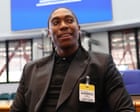
In a world where the intersection of sports, public health, and human rights often presents complex challenges, recent developments highlight significant strides and ongoing hurdles in these fields. From courtrooms to global health missions, these narratives matter profoundly for personal freedoms and public welfare.
The unyielding spirit of Caster Semenya, the South African Olympic champion, emerged victorious in a pivotal legal battle as Europe’s top human rights court ruled in her favor. This decision underscores the importance of upholding athletes’ rights on the global stage. The European Court of Human Rights found that Semenya had not received a fair trial in her efforts to contest regulations mandating the reduction of her natural testosterone levels to compete in women’s events. This ruling marks yet another chapter in Semenya’s long-standing struggle against policies perceived as invasive and unjust. Semenya has consistently advocated for the prioritization of athletes’ rights, emphasizing the need for systems that respect and empower rather than constrain and detract.
Simultaneously, another significant global issue is drawing attention—the criminalization of high-risk HIV groups, which threatens to reverse years of progress toward ending the AIDS epidemic. The United Nations Programme on HIV/AIDS (UNAIDS) has raised concerns about the increasing number of countries instituting laws that penalize same-sex relationships and certain gender expressions. This uptick in legal restrictions may undermine efforts to curb the spread of HIV, highlighting the need for humane and scientifically informed policies. Moreover, these developments come at a time when US funding, instrumental in global HIV prevention strategies, has experienced fluctuations, posing risks to collaborative health initiatives.
In Portugal, ongoing debates about the healthcare system reveal the tensions between public and private sector roles. Opinion pieces have voiced frustrations over the challenges faced by the National Health Service (SNS). Despite its foundational quality and essential contributions funded by the state budget, there are concerns about the mingling of public and private interests, potentially detracting from the SNS’s effectiveness. The conversation further extends to emergency services, which some describe as chaotic and overwhelmed, drawing comparisons to third-world conditions. These critiques call for a nuanced dialogue about improving healthcare delivery to assure safety, efficiency, and quality care for all citizens.
It is a time of reflection and action. Whether in the fair treatment of gifted athletes like Semenya or in supporting marginalized communities struck by health-related stigmas and legal challenges, the road ahead requires coalition-building and commitment. Advancing justice and wellness in these domains reaffirms a global dedication to creating environments where all individuals can thrive without prejudice or undue hardship.
The stories shared offer a reminder of the interconnectedness of global communities. Each step forward, each challenge addressed with empathy and resolve, contributes to a tapestry of resilience and shared progress. As these narratives unfold, the enduring quest for dignity, health, and equity remains at the forefront of international discourse and action.
Source: {link}
